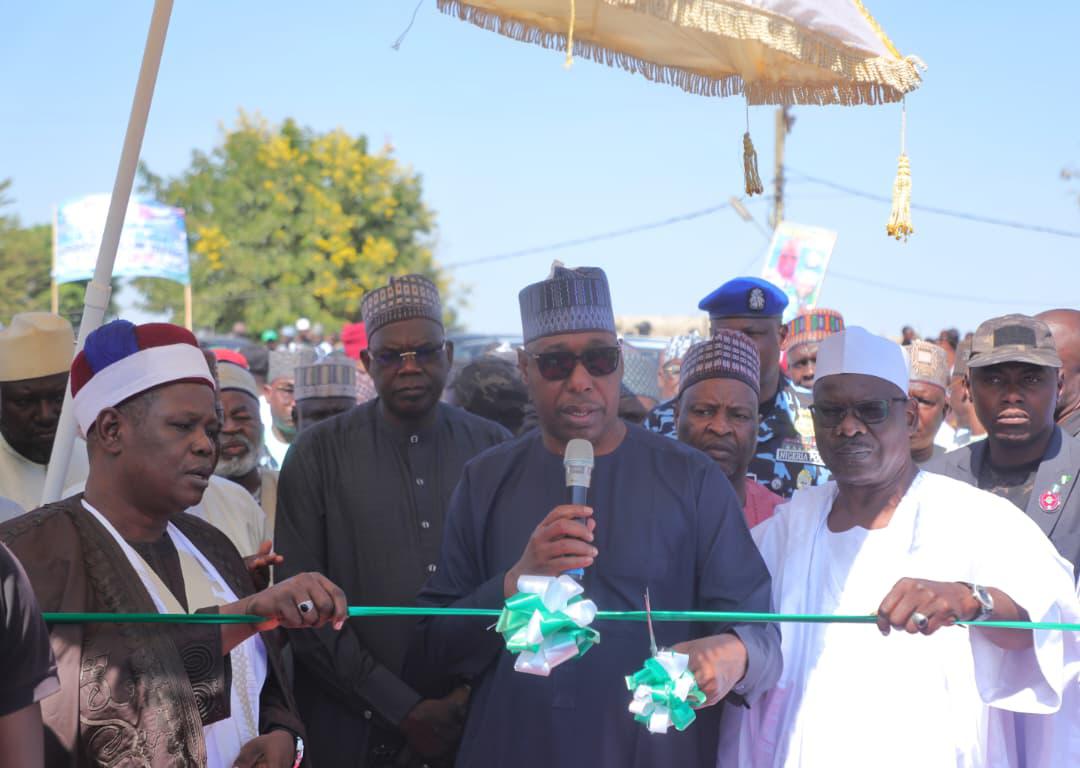The Federal Government has announced that it is seeking investments of N1.5 trillion in the country’s medical education within the next five years.
This is even as it has allocated over N110 billion to 18 public universities to boost enrollment into Medicine and Surgery, Pharmacy, Dentistry, and Nursing programmes.
Minister of Education, Dr. Tunji Alausa, stated this on Tuesday in Abuja during the inauguration of the Ministerial Committee on TETFund High Impact Intervention Project for medical schools’ rehabilitation across the six geopolitical zones.
Specifically, the minister said the administration is deploying over N110 billion naira investment in 18 medical institutions across the country in the first year.
Giving a breakdown of the amount, the minister disclosed that a N70 billion investment would be for rehabilitating medical institutions in the 18 institutions, N15 billion in building new hostels for each of the schools, as well as medical simulation laboratories in six of the institutions.
According to the minister, each of the 18 institutions will get N4 billion, including N750 million each to build new hostels.
The panel is chaired by Prof. Sulaiman Alabi.
The benefiting institutions include the University of Jos; Ahmadu Bello University, Zaria; University of Benin; University of Ibadan; Imo State University; University of Medical Sciences, Ondo State; Umaru Musa Yar’Adua University, Katsina State; University of Calabar; Benue State University; and University of Maiduguri.
Others are Abubakar Tafawa Balewa University; Gombe State University; University of Nigeria, Nsukka; Nnamdi Azikiwe University; Bayelsa State University; and Usmanu Danfodiyo University, Sokoto.
Alausa said, “The rehabilitation of medical schools will have a profound impact on the quality of medical education in Nigeria. This intervention will: enhance learning facilities. Modernised classrooms, laboratories, and clinical training facilities will provide students with a conducive environment for learning.
“Advanced research facilities and equipment will enable medical students and faculty to conduct research that will drive medical innovations and address health challenges specific to Nigeria.
“Well-trained medical professionals will contribute to better healthcare outcomes across the country, particularly in underserved areas.
“By upgrading the standards of medical education in Nigeria, we will attract international partnerships, collaboration, and recognition, positioning our country as a leader in medical training and healthcare excellence.”
In his remarks, the Executive Secretary, Tertiary Education Trust Fund (TETFund), Sonny Echono, noted that the goal is to improve medical school infrastructure, increase capacity, and produce more healthcare professionals.
“The setting up of this committee was conceived as part of the Hon. Minister’s initiative to enhance the Nigerian education system, specifically the medical schools, by utilising the TETFund High Impact Intervention Projects efficiently and effectively to address critical national needs in the health sector. This has been designed to improve infrastructure in medical schools, through the rehabilitation of lecture theatres and laboratory facilities, thereby enhancing capacity to take in and produce more doctors, nurses, dentists, and pharmacists for the nation.
“There is absolutely no doubt that the intervention will go a long way in solving some of the challenges facing the health sector in the country. The provision of critical manpower in the health sector remains a huge challenge. The problems of insufficient and unqualified medical personnel have lingered for far too long. The challenges of ill-equipped medical facilities have also persisted. It is for these reasons that the intervention is considered not only important but also timely.”






